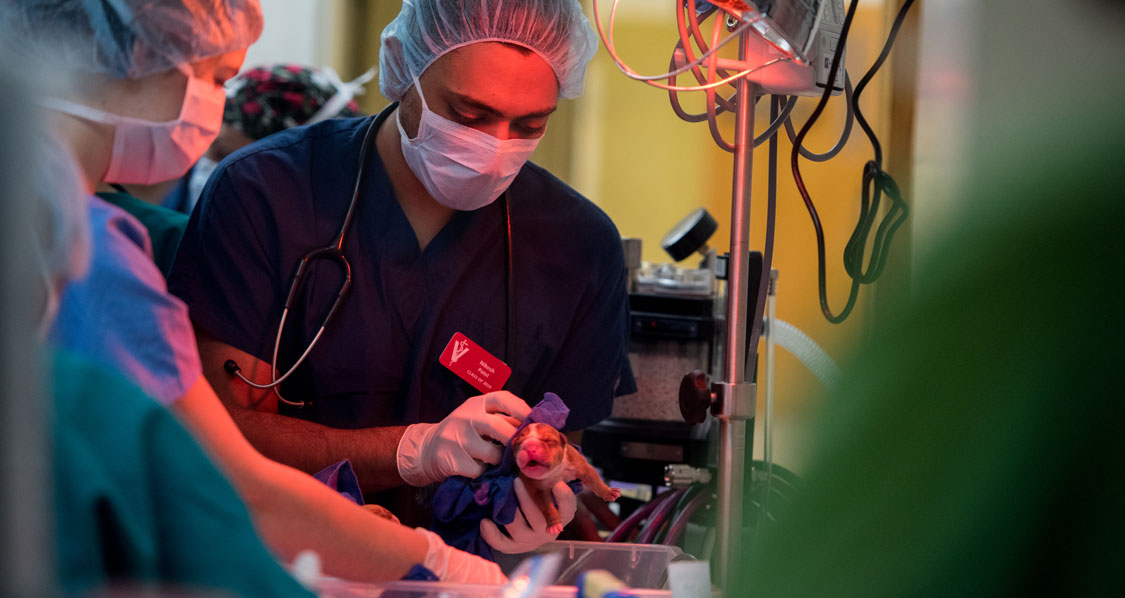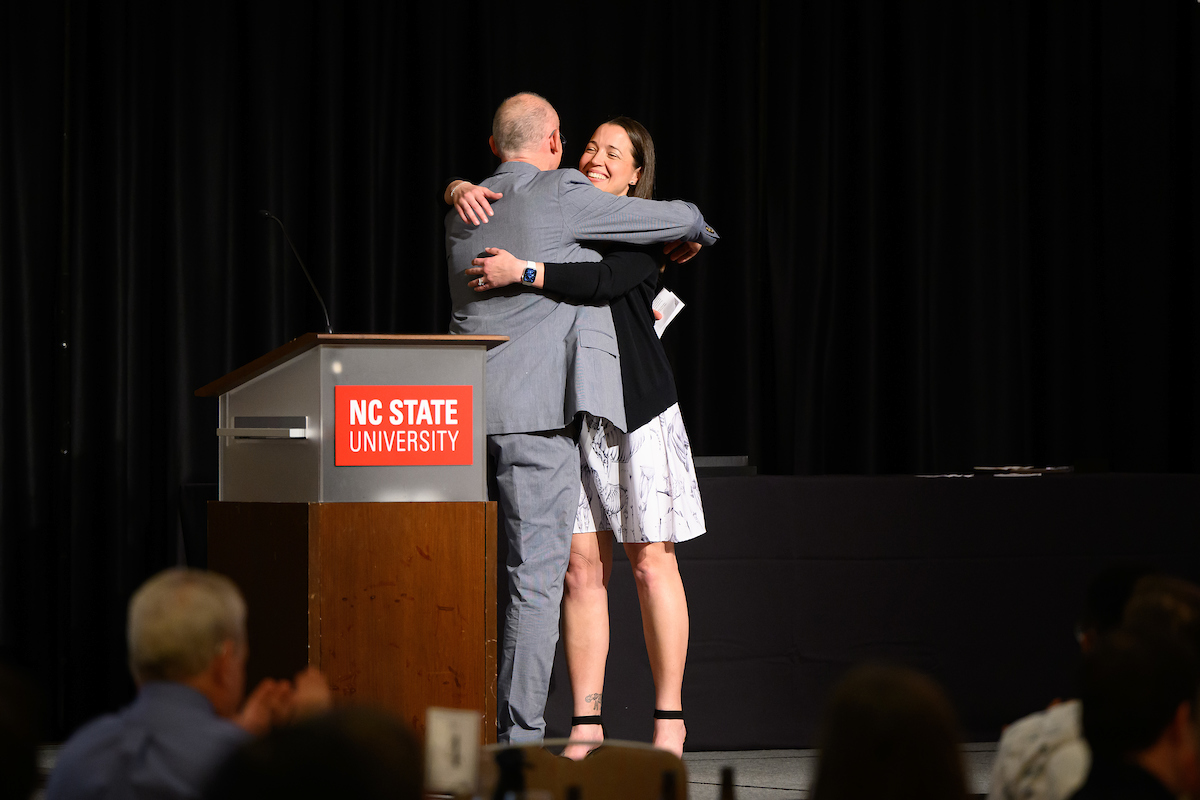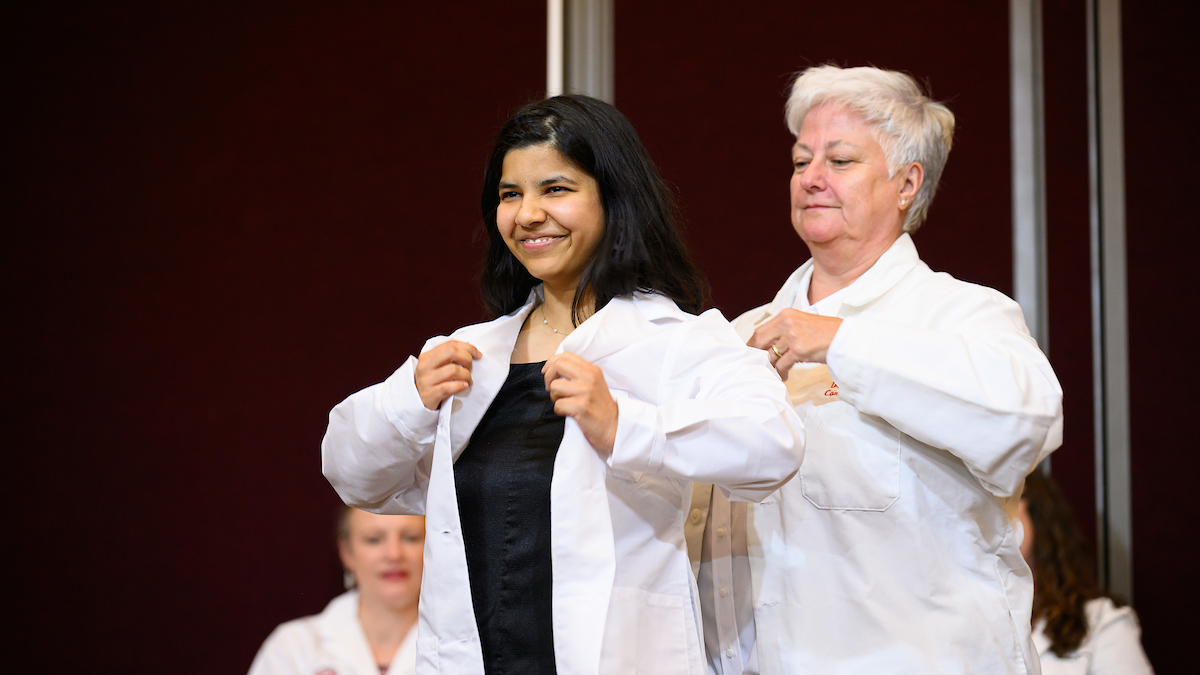Spit Take: Using Salivary Science to Measure Student Stress

Veterinary students usually consider surgery the most stressful part of their training. A new NC State College of Veterinary Medicine study provides scientific evidence of that claim in a most unconventional way.
In the first study of its kind in veterinary medicine, CVM researchers used salivary biomarkers to show stress in students performing surgery and noted that a mindfulness practice — in this case, a five-minute breathing exercise —helped relieve stress.
A group of 18 fourth-year CVM students on clinical training rounds participated in the study, providing saliva samples before and after assisting in surgery. Along with student-reported mood measures, researchers focused on the samples’ levels of cortisol and alpha-amylase, salivary biomarkers indicating stress.
Both biomarkers captured high stress levels before surgery and indicated reduced stress after the mindfulness exercise. The study, published in Veterinary Surgery, is also believed by the researchers to be the first using salivary biomarkers to explore stress levels in a surgery with live patients. Further studies are needed to pinpoint the best evidence of how mindfulness interventions decrease stress.
Two of the study’s co-authors, Brenda Stevens, general practice clinical associate professor, and Kenneth Royal, assistant professor of educational assessment and outcomes, share their thoughts on the results.
What does the study reveal the most about stress levels of surgical students and how mindfulness exercises can help?
Brenda Stevens: This study tells us our students are stressed. We know that stress is multifactorial and then the added stress of performing surgery on an animal compounds that. We also know that mindfulness exercises can reduce stress and increase productivity. This experiment demonstrates that even a five-minute mindfulness exercise is able to reduce stress.
Where did the idea for this study and its experimental “salivary science” approach come from?
Kenneth Royal: Most studies that have investigated students’ stress levels have relied on self-reported surveys. However, recent research suggests medical students often are more reluctant to admit to experiencing stress and anxiety in fear that it will affect how others will perceive them and that ultimately decreases their chance of entering a desirable residency program or getting a job. Salivary biomarkers have been shown to be much more objective as stress measures.
Mindfulness exercises have been integrated into general practice rotations at the CVM for years. How have you seen its effectiveness?
Stevens: Yes, students are definitely more relaxed when proceeding into surgery. In addition, we have had students come by from other rotations to join in our mindfulness practices. That was the biggest compliment.
What other strategies are veterinary students using to cope with stress?
Royal: Our students are using a number of approaches, many of which they learn about from our house system program. We continually educate and encourage students to engage in a well-rounded approach to healthy living that includes maintaining proper sleep hygiene, making good dietary choices, engaging in exercise, practicing social fitness and much more. Collectively, these efforts help build resilience and healthy lifestyle habits that help students cope with the many stressors in their lives.
Reducing stress levels also reduces medical errors. What can be done to further address that issue?
Stevens: One of the tenets of mindfulness is to be present in the moment without judgment. If we could all be present and truly listen, we would not be distracted and potentially miss hearing important information.
The study, “Effect of a mindfulness exercise on stress in veterinary students performing surgery,” can be found here.
The study’s other CVM co-authors are Amy Snyder, clinical assistant professor; Abi Taylor, general practice clinical assistant professor; and Kelli Ferris, general practice clinical assistant professor.
~Jordan Bartel/NC State Veterinary Medicine


